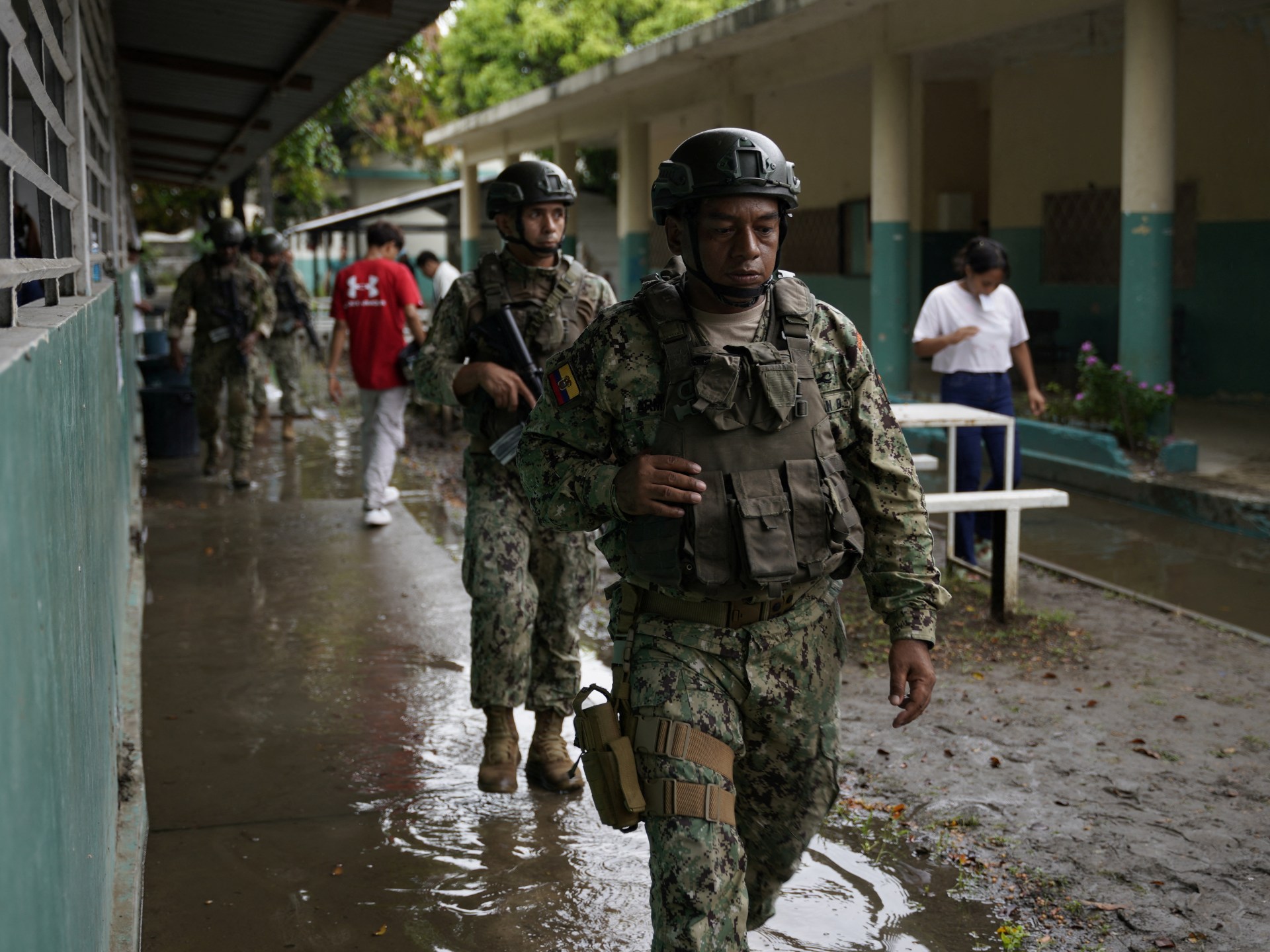Human Rights Watch (HRW), an international nonprofit, has led its own investigation into what happened that day in the lead-up to Vega’s death.
Last month, it denounced the shooting as an “apparent extrajudicial execution” in an open letter to President Noboa, detailing alleged human rights abuses committed by the military.
According to HRW, an autopsy report revealed Vega’s body had four projectile wounds, causing lacerations to his lungs and intestine. He ultimately died from internal bleeding.
The nonprofit also said that witness descriptions, as well as photos and videos of the altercation, reveal the soldiers appeared to “have been slow to provide aid”, despite the life-threatening injuries.
“They delayed several minutes before calling an ambulance, and this was decisive because the wounds were serious,” said Abraham Aguirre García, a lawyer for the Permanent Committee for the Defense of Human Rights, a nonprofit in Guayaquil.
Aguirre is representing the Vega family in ongoing legal proceedings against the military: The Attorney General’s Office is investigating the soldiers for use of excessive force. He believes the military opened fire on February 2 with the intent to kill.
“The military never complied with the obligation to use force progressively. They never took into account the risks of shooting,” he said.
The military, however, offered its own version of events in its February social media post. It said Vega and Velasco “received first aid” from the local fire department at the scene, before “being transferred through the chain of custody to a health facility”.
In an interview with the local television network Ecuavisa, military commander Carlos Salvador also said that the soldiers aimed at the Chevrolet’s wheels, not its passengers.
He blamed “the irregularities of the area, the movement of the vehicle and the recklessness of the driver” for Vega’s death and Velasco’s injuries.
The Vega family, however, has called for a ballistic examination to create a three-dimensional model of the crime scene, in order to understand the precise circumstances surrounding the shooting. A prosecutor is investigating the soldiers involved in the incident.
In response to questions from Al Jazeera, the Ministry of Defence said in a statement, “The case is being investigated by the competent authority. Our institution is providing all the related support.”
In the aftermath, though, Velasco was charged with assault and resisting arrest. He spent a month and a half under house arrest.
Ultimately, a local judge closed the investigation into his behaviour and set him free on April 10.


